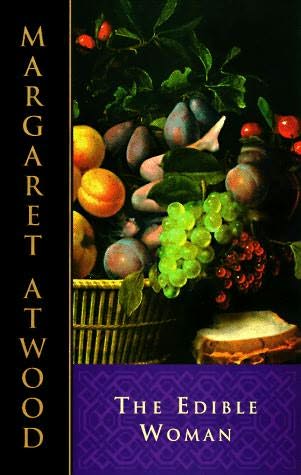i talked to idris about this book a little bit, and he compared its subject matter to jane austen's discussion of marriage as the realm within which women were ambitious in the early 19th century: it was a matter of survival and was approached almost as career decisions are now. in fact, connecting those dots - austen's elizabeth bennett to ibsen's nora helmer to atwood's marian to me - can induce vertigo! life has changed so much for western women in just two centuries. and - as a cause, effect, and effect of the same cause - for men, too.
in the final analysis, i struggled with this novel. unsurprisingly, the writing itself was lovely in its rhythmic oscillation from poetic description and metaphor to concrete colloquial prose. but when the protagonist, marian, loses it a little bit, her actions aren't nearly as inexplicable as the reactions of others to her. in fact, almost everyone but marian comes across as symbolic rather than real. this isn't a complaint, exactly - after all, most of us view the minor characters in our lives as largely representational rather than authentic. i also found myself wondering if even compensating with the requisite inflation that comes with metaphor, there might be some hyperbole going on. but this is common for me: i have to confess that i really can't fathom what these women went through, both inside and outside their heads. and this journey into one such woman's mind was disorienting and somewhat unsatisfying for me. i wasn't entirely happy with some of her decisions, and i didn't know how i felt about how it all ended. that sort of thing.
this is only the second atwood i've ever read - i finally read "alias grace" last year, and liked it quite a bit. i feel that she's telling important stories, stories that haven't been told before and are therefore mysterious - you really have no clue where it's all heading. it's not always the most enjoyable experience, but it's unfailingly interesting and thought-provoking. and a little humbling. after all, being reminded that there are so many stories unlike my own really puts things into perspective.
